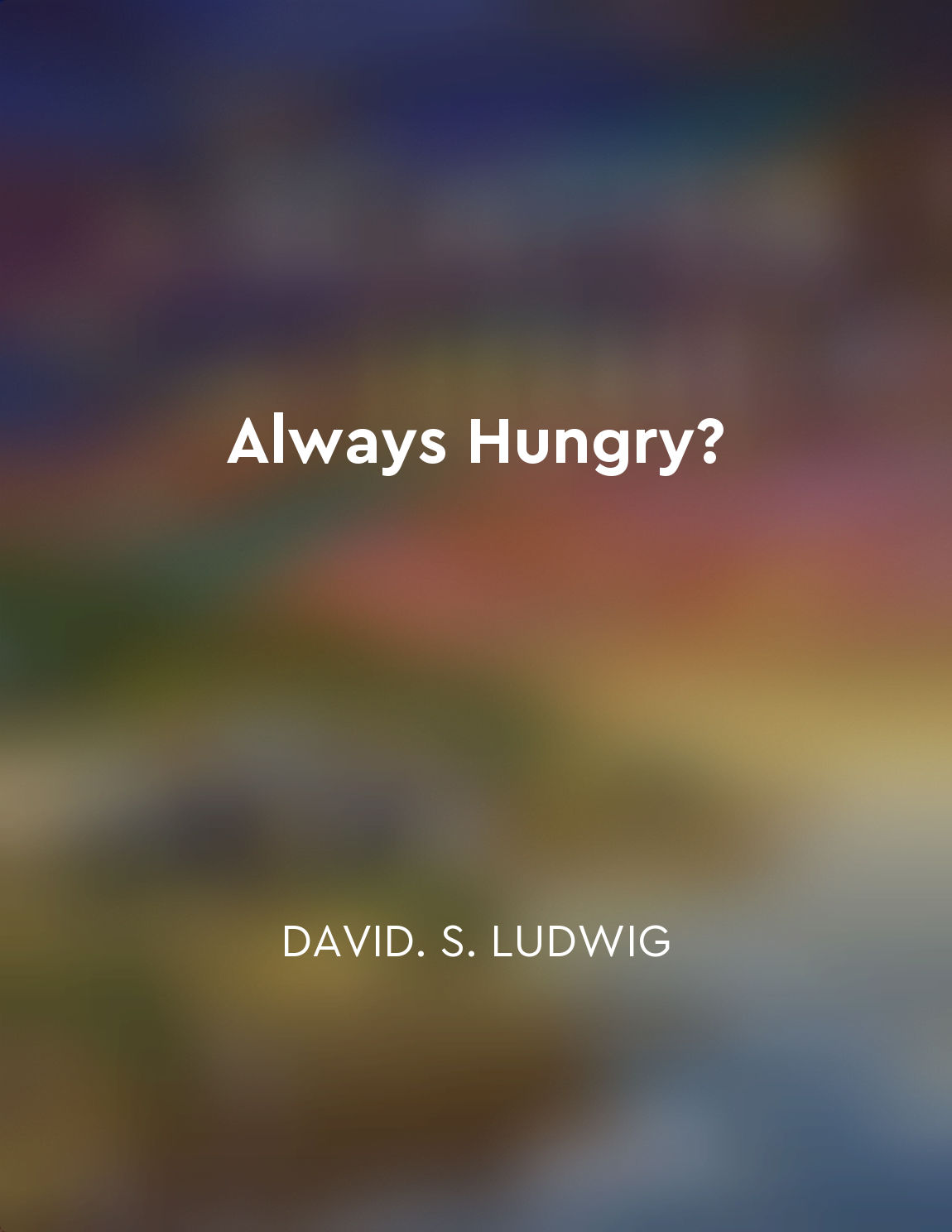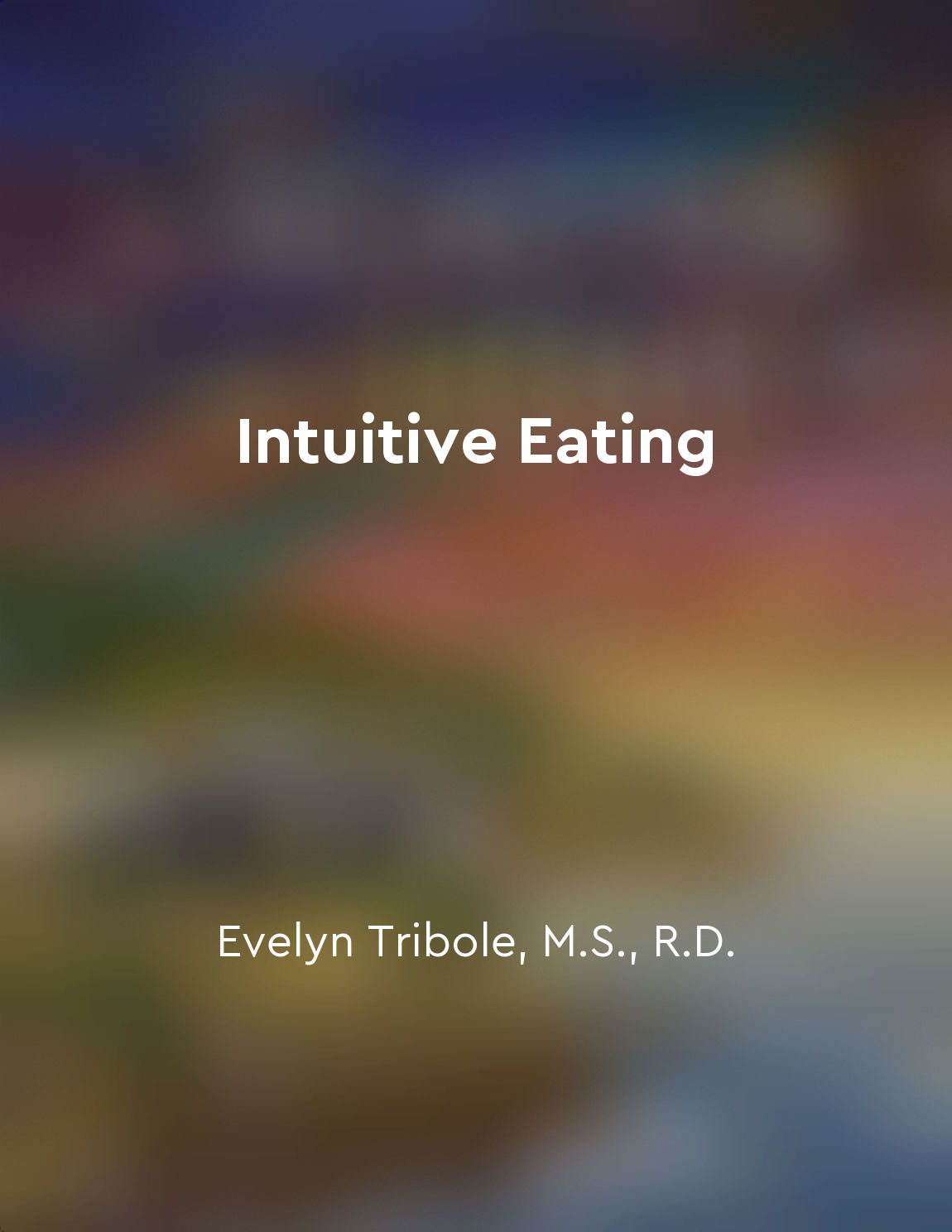Trust your body to tell you when and what to eat from "summary" of Intuitive Eating by Evelyn Tribole, M.S., R.D.,Elyse Resch, M.S., R.D., F.A.D.A.
As you embark on your journey towards intuitive eating, it is essential to understand and embrace the concept of trusting your body to guide you in making food choices. This principle is rooted in the belief that your body possesses inherent wisdom to communicate its needs and preferences, including when and what to eat. By tuning into your body's signals and cues, you can cultivate a deeper awareness of your hunger and fullness levels, as well as your cravings and food preferences. When you trust your body to tell you when and what to eat, you are essentially honoring its natural ability to regulate nourishment. Instead of relying on external rules or restrictions imposed by diet culture, you shift towards a more intuitive and mindful approach to eating. This means letting go of the diet mentality that dictates what, when, and how much you should eat, and instead, tuning into your body's unique cues and signals. By listening to your body's cues, you can begin to differentiate between physical hunger and emotional or psychological hunger. Physical hunger is a biological signal that indicates your body needs nourishment, while emotional hunger is often driven by non-food-related factors such as stress, boredom, or loneliness. Learning to distinguish between the two can help you develop a healthier relationship with food and eating. Trusting your body to guide your food choices also involves letting go of food rules and restrictions that may have been ingrained in your mind. This means giving yourself unconditional permission to eat all foods without judgment or guilt. When you allow yourself to enjoy a variety of foods in a balanced and satisfying way, you can cultivate a more positive and sustainable approach to eating that is based on nourishment and pleasure rather than deprivation or control.- Trusting your body to tell you when and what to eat is about reconnecting with your body's innate wisdom and intuition. By listening to your body's signals, honoring your hunger and fullness, and letting go of external rules and restrictions, you can cultivate a more intuitive, mindful, and balanced relationship with food and eating. This process of self-discovery and self-trust can lead to greater satisfaction, enjoyment, and overall well-being in your relationship with food.
Similar Posts

Developing selfawareness is essential for self-discipline
Self-awareness is a fundamental aspect of self-discipline. Without self-awareness, it is challenging to cultivate the mindfulne...
Cultivating gratitude and appreciation is integral to mindfulness practice
Gratitude and appreciation are fundamental aspects of mindfulness practice. When we cultivate an attitude of gratitude, we are ...

Including fermented foods in your diet can improve digestion and nutrient absorption
Fermented foods have been a part of our diet for thousands of years, and for good reason. They are filled with beneficial probi...
A return to nutrientdense foods is essential for health
Returning to nutrient-dense foods is crucial for our health. In the past, our food was packed with essential nutrients that kep...

The diet can help prevent agerelated muscle loss
Age-related muscle loss, also known as sarcopenia, is a common issue among older adults that can lead to decreased strength, mo...

Insulin plays a key role in weight gain and loss
Insulin is a hormone that regulates blood sugar levels, but its effects go far beyond that. When we eat, particularly carbohydr...
Food preparation methods impact nutrient content
The way we prepare our food can have a significant impact on the nutrients it provides. Cooking, baking, grilling, or frying ca...

Balancing macronutrients supports weight management
Balancing macronutrients is essential for maintaining a healthy weight. Macronutrients refer to carbohydrates, proteins, and fa...
Whole foods contain valuable nutrients
Whole foods are a natural source of essential nutrients that are beneficial for our health and well-being. These nutrients are ...
Eating frequency can impact insulin levels
The frequency with which we eat has a significant impact on our insulin levels. When we eat, our bodies release insulin to help...


